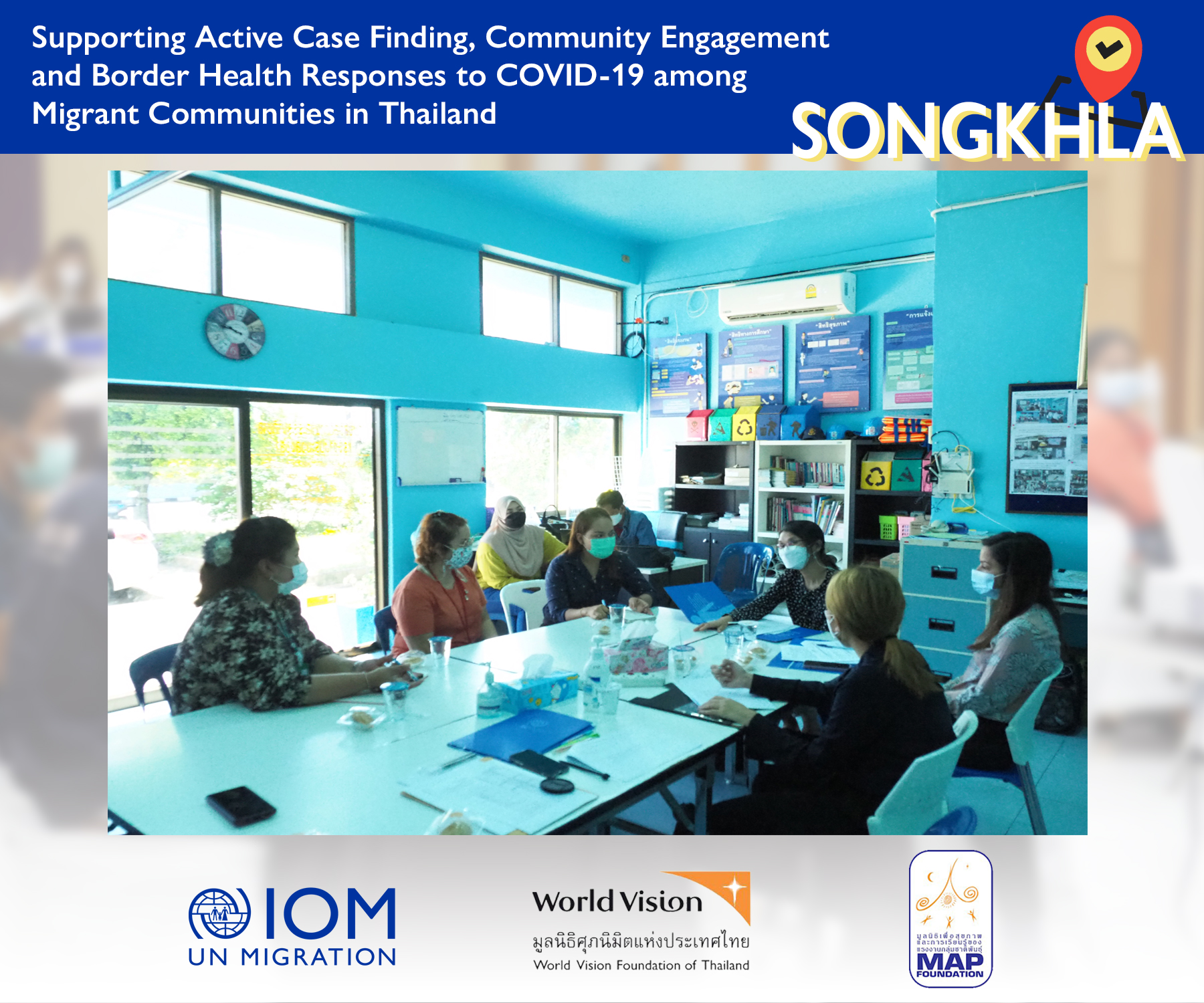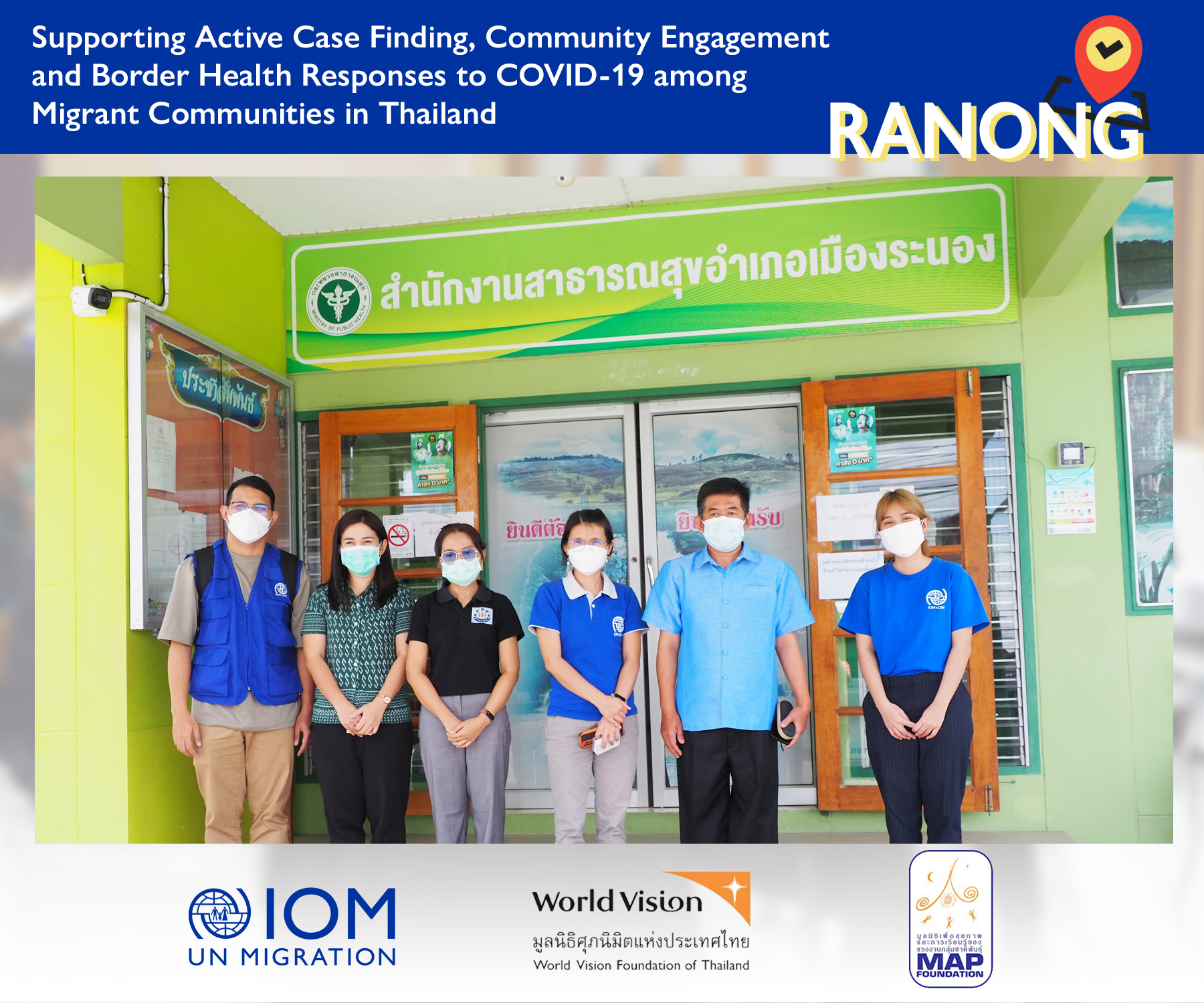-
Who We Are
WHO WE AREThe International Organization for Migration (IOM) is part of the United Nations System as the leading inter-governmental organization promoting since 1951 humane and orderly migration for the benefit of all, with 175 member states and a presence in over 100 countries.
About
About
IOM Global
IOM Global
-
Our Work
Our WorkAs the leading inter-governmental organization promoting since 1951 humane and orderly migration, IOM plays a key role to support the achievement of the 2030 Agenda through different areas of intervention that connect both humanitarian assistance and sustainable development.
Cross-cutting (Global)
Cross-cutting (Global)
- Data and Resources
- Take Action
- 2030 Agenda
Local Public Health authorities and the NGOs working together with concerted efforts to respond to the challenges of the pandemic
In April 2022, IOM visited public health officers in Ranong and Songkhla to exchange information, best practices and lessons learned from the pandemic and the implementation of the IOM Active Case Finding (ACF) project. This project was implemented in collaboration with our partners – the World Vision Foundation of Thailand in Ranong and Stella Maris in Songkhla. These two provinces house approximately 75,000 registered migrants, most of whom work in the fisheries and industrial/food processing sectors. Many of these migrants reported having faced significant socio-economic impact and challenges due to the COVID-19 pandemic such as a loss in income, worsened livelihood and increased personal debt. Some passed away as a result of COVID-19.
Public Health Authorities in Ranong and Songkhla implemented measures to support the migrants during the pandemic including conducting case finding in communities, establishing local quarantine facilities (LQ), facilitating vaccination for all populations and all groups of people, and providing COVID-19 related training for Migrant Health Volunteers (MHVs). Unfortunately, despite these efforts, they were still limited in meeting the needs of all migrants.
After working closely with the partner agencies, the health authorities highlighted MHVs’ invaluable support in responding to the pandemic. Partner-incubated MHVs are praised for having played a pivotal role in increasing access for migrants, raising awareness about the virus and vaccines, and facilitating the communication between migrants and health workers. Relief package distribution by the project, which was facilitated by both World Vision Foundation Thailand and Stella Maris, also helped in granting the necessities to migrants who needed to undergo quarantine or self-isolation.
Under the cooperation partnership, key lessons learned during the pandemic were also identified. First, there is insufficient protection and incentives for MHVs, hence there is a need to strengthen the capacity of the MHV mechanism. Second, working with the partner agencies could fill in the gaps of the Public Health Authority and timely address the incoming problems. Lastly, recognizing the importance of Information Education Communication (IEC) materials in promoting knowledge on self-prevention and providing vital information during the outbreak, the approach of interpersonal “knock on the door” is still considered necessary as hurdles such as language barrier and inaccessibility to technology still exist.
The project henceforth gave an opportunity for the government sector and local non-governmental organizations (NGOs) to cooperate and further synergize inter-sectional efforts. It laid the groundwork for future cooperation between the two as well as strengthening the capacity of the local actors in preparing and responding to possible new migrant health challenges.
 |
 |
